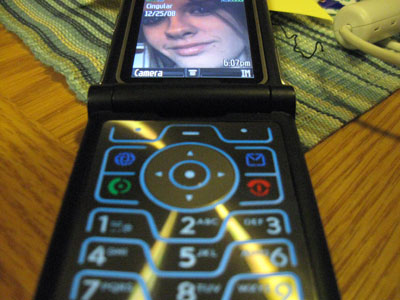All Nonfiction
- Bullying
- Books
- Academic
- Author Interviews
- Celebrity interviews
- College Articles
- College Essays
- Educator of the Year
- Heroes
- Interviews
- Memoir
- Personal Experience
- Sports
- Travel & Culture
All Opinions
- Bullying
- Current Events / Politics
- Discrimination
- Drugs / Alcohol / Smoking
- Entertainment / Celebrities
- Environment
- Love / Relationships
- Movies / Music / TV
- Pop Culture / Trends
- School / College
- Social Issues / Civics
- Spirituality / Religion
- Sports / Hobbies
All Hot Topics
- Bullying
- Community Service
- Environment
- Health
- Letters to the Editor
- Pride & Prejudice
- What Matters
- Back
Summer Guide
- Program Links
- Program Reviews
- Back
College Guide
- College Links
- College Reviews
- College Essays
- College Articles
- Back
R U 1 of Them?
Teenagers are obsessed with speed. We r determined 2 cre8 quick and EZ methods 2 get tasks done more efficiently. This way more time can be spent on amusing activities like playing Cut the Rope on our smart phones. The need to be fast is rubbing off on our writing habits and reshaping the concept of written and sometimes verbal communication. A whole new branch of language through the use of abbreviations and misspellings, replacing long phrases such as “mind your own business” with “MYOB” in order to get our point across at record speed.
But here’s the big question: Is this shortened form of communication a more practical progression in our language’s evolution, or a regression in our laziness to not spell phrases out fully?
Condensed expressions are not all bad. Abbreviations and acronyms enable texters to have quick interactions, and in certain circumstances these techniques can prove to be a productive option. For instance, even though phone companies promote that they have service everywhere, there are always many, many places that inconveniently do not. You are in an area where your phone is on the verge of plummeting to zero bars. Rather than spending the extra seconds to spell out “Got to go, talk to you later,” sending a quick “g2g ttyl” message would be the wiser decision.
However, this mastered art of “shortcutting” is appearing in our formal and professional means of communication. For example, email users are beginning to adopt text message shorthand, which is not acceptable for the upcoming generation of professionals to use in business emails. This makes logical sense, if one is trying to be taken seriously, not to use the letter “u” in place of “you” in an informative message to fellow employees.
This brings to mind another important issue, which identifies the separation between those who are informed on what abbreviations represent and those who are left scratching their head after seeing “IDK” (I don’t know) in a sentence. When the texting vocabulary becomes a language barrier between generations, it can lead to miscommunications as young people move to professional settings. This problem can escalate and lead to multi-generational disconnects.
Especially forming between teenagers and adults, there is a major divider in how communication is handled. According to the Pew Research Center, “63% of all teens say that they exchange text messages every day. The constant exposure to and overuse of this abbreviated language is not giving teenagers enough practice with writing well formulated sentences displaying proper grammar and spelling. Elders who try and connect with younger age groups can’t keep up with the constant trending shorthand lingos that are now being spoken in face-to-face dialogue. When grandparents, or even parents for that matter, find themselves having to come up with a response after hearing “OMG LOL” (oh my gosh, laugh out loud) expressed by their teenager, the disconnect becomes very noticeable. Situations like these demonstrate the lack of intelligent conversation taking place in the everyday lives of young people.
Although some use of these terms are started with good intentions and will grow to become commonplace within our language, there is still a call for balance on the subject. Making abbreviations a positive branch of communication starts with knowing the appropriate time and place to utilize this speedy shortcut. Texting shorthand cannot be stopped, but we can learn to limit the usage so that the rest of our impeccable language remains preserved and untouched.

Similar Articles
JOIN THE DISCUSSION
This article has 0 comments.
